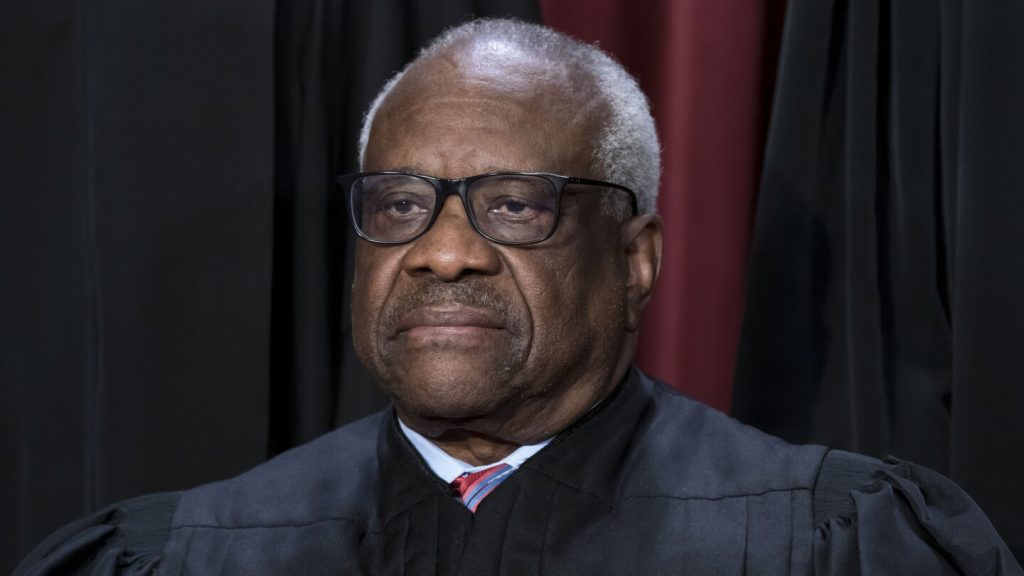Supreme Court Justice Clarence Thomas returned to the bench after a one-day absence, participating in arguments regarding the Capitol riot on Jan. 6, 2021. Despite calls from progressive groups for him to recuse himself from cases related to Jan. 6 due to his wife’s involvement in a pro-Trump rally, Thomas has chosen to stay involved. Ginni Thomas, a conservative activist, attended the rally and contacted Trump administration officials after the election, expressing beliefs of widespread fraud. Thomas was absent from Monday’s arguments, with no explanation provided by Chief Justice John Roberts, who announced his absence. Thomas previously missed court sessions due to a hospitalization two years ago but still participated in the cases remotely.
As the longest-serving current justice on the Supreme Court, Clarence Thomas has been a prominent figure since joining in 1991. His involvement in cases related to the Capitol riot has raised concerns among some groups about potential bias due to his wife’s connections to the events leading up to Jan. 6. Despite these concerns, Thomas has continued to participate in arguments and decisions regarding this issue. His absence on Monday, without explanation, drew attention from court watchers and raised questions about his health or other reasons for not participating in the proceedings. Thomas has faced scrutiny in the past for his positions on various issues and his relationship with his wife, Ginni Thomas, who is a vocal conservative activist.
Justices on the Supreme Court occasionally miss sessions but can still participate remotely if needed. Thomas has previously participated remotely in cases due to his hospitalization, showing his dedication to fulfilling his duties as a justice. His return to the bench after a one-day absence indicates his commitment to the responsibilities of his role and his willingness to engage in important legal matters. The Supreme Court plays a crucial role in interpreting the law and making decisions that impact the country, and having all justices present and participating in cases ensures a fair and thorough consideration of each issue. Thomas’ presence in court demonstrates his dedication to his position and the importance of his perspective in the decision-making process.
The involvement of Ginni Thomas in political activities and her connections to the events leading up to the Capitol riot have raised ethical questions about Justice Clarence Thomas’s impartiality in related cases. Some progressive groups have called for Thomas to recuse himself from these cases to avoid any potential conflicts of interest or perceived biases. The Supreme Court justices are expected to uphold the highest standards of ethics and fairness in their decisions, and concerns about impartiality can undermine public trust in the integrity of the court. Thomas’s decision to continue participating in cases related to the Capitol riot despite these concerns may further fuel debates about the ethical standards of the Supreme Court and the need for transparency in judicial decision-making. Although Thomas has not provided an explanation for his absence on Monday, his return to the bench signals his intention to fulfill his duties as a justice and contribute to the court’s deliberations on important legal issues.


